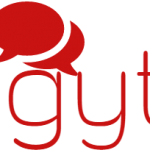In today’s competitive job market, it can be tough to stand out among the thousands of other job seekers vying for the same positions. However, with a few strategic moves, you can make yourself more visible to potential employers and increase your chances of landing your dream job. Here are some tips to help you stand out in a crowded job market:
Tailor your resume and cover letter
When it comes to job applications, your resume and cover letter are two of the most important pieces of your application materials. They are typically the first documents that a hiring manager or recruiter will review, and they serve as a representation of who you are as a candidate. In a crowded job market, it’s essential to make your resume and cover letter stand out from the rest.
One effective way to do this is by tailoring your resume and cover letter to each job you apply for. This means researching the company and the position you’re interested in, and then customizing your application materials to highlight your relevant skills and experience.
To tailor your resume, start by reviewing the job posting and identifying the key skills and qualifications that the employer is looking for. Then, make sure that these skills and qualifications are prominently featured on your resume. This might mean reordering your bullet points, emphasizing specific achievements that demonstrate your relevant skills, or adding new sections to your resume that showcase your experience in the desired areas.
Similarly, when tailoring your cover letter, take the time to research the company and the position, and use this information to craft a personalized message that shows why you’re a great fit for the role. Explain how your skills and experience align with the company’s mission and values, and provide specific examples of how you can contribute to the organization’s success.
Leverage your network
Leveraging your network is an important aspect of any job search, and it involves using your professional and personal connections to help you find job opportunities, get referrals, and obtain valuable information about the industry you’re interested in.
Your network may include former colleagues, supervisors, professors, classmates, friends, and family members. These are people who know you well and can vouch for your skills and character, and who may have connections or knowledge of job opportunities that you may not be aware of.

To leverage your network effectively, start by reaching out to your contacts and letting them know that you’re actively seeking employment. You can do this via email, social media, or in-person meetings. Explain your career goals, your areas of expertise, and the type of positions you’re interested in, and ask if they know of any job openings or if they can introduce you to someone who may be able to help.
In addition to reaching out to your existing contacts, it’s also important to expand your network by attending industry events, joining professional organizations, and participating in online communities. These are opportunities to meet new people who share your interests and who may be able to provide you with valuable information or referrals.
When leveraging your network, it’s important to be professional and respectful of your contacts’ time and resources. Be sure to thank them for any assistance they provide, and follow up promptly with any leads or referrals they offer.
Use social media
Social media can be a powerful tool for job seekers looking to stand out in a crowded job market. Platforms like LinkedIn, Twitter, and even Facebook and Instagram can help you connect with potential employers, showcase your skills and experience, and stay up-to-date on industry trends and job openings.
To use social media effectively in your job search, start by creating a professional profile on LinkedIn. This should include a clear and concise summary of your skills and experience, as well as a professional headshot and examples of your work. You can also use LinkedIn to connect with people in your industry, follow companies you’re interested in, and search for job opportunities.
Twitter can be another useful platform for job seekers, particularly if you’re interested in a particular industry or niche. By following industry leaders and participating in Twitter chats and discussions, you can build your online presence and establish yourself as a thought leader in your field.

Facebook and Instagram may not be as commonly used for job searching, but they can still be valuable tools for showcasing your skills and experience. You can use these platforms to share photos or videos of your work, highlight your accomplishments, and connect with people in your industry.
When using social media for job searching, it’s important to remember to keep your profiles professional and appropriate for potential employers. This means avoiding controversial or offensive content, and ensuring that your profiles are up-to-date and accurate.
Develop your skills
Developing your skills is an important strategy for standing out in a crowded job market. By continually improving your skills and knowledge, you can demonstrate to potential employers that you’re committed to your career and are always seeking new opportunities to grow and learn.
There are many ways to develop your skills, depending on your industry and career goals. One option is to pursue additional education or training, either through a degree program or through certifications and specialized courses. This can help you gain new skills and knowledge, and can also make you a more competitive candidate for job openings.
Another way to develop your skills is through on-the-job training and experience. If you’re currently employed, look for opportunities to take on new projects or responsibilities that can help you develop new skills or build on existing ones. This can include attending training sessions or conferences, working on cross-functional teams, or volunteering for leadership roles within your organization.
In addition to formal education and on-the-job training, you can also develop your skills through self-directed learning. This can include reading industry publications, participating in online courses or webinars, or even starting a side project or freelance work to gain hands-on experience in a new area.

When developing your skills, it’s important to focus on areas that are relevant to your career goals and the job market you’re interested in. This means staying up-to-date on industry trends and technologies, and seeking out opportunities to learn new skills that are in high demand.
Volunteer or freelance
Volunteering or freelancing can be a great way to stand out in a crowded job market, as it allows you to gain valuable experience, build your portfolio, and develop your skills outside of your current job.
Volunteering can be a particularly effective way to gain experience in a new field or industry, as many non-profit organizations are in need of skilled volunteers to help with various projects and initiatives. By volunteering, you can gain hands-on experience in areas that may be outside of your current job responsibilities, and can also make valuable connections with people in your industry.
Freelancing, on the other hand, can be a great way to build your portfolio and demonstrate your skills to potential employers. By taking on freelance projects, you can gain experience working with a variety of clients and industries, and can also develop your skills in areas that you may not have had the opportunity to explore in your current job.
Whether you choose to volunteer or freelance, it’s important to approach these opportunities with a strategic mindset. This means seeking out opportunities that are relevant to your career goals and interests, and using these experiences to build your skills and network.
When volunteering or freelancing, it’s also important to be professional and reliable, even if you’re not getting paid for your work. This means meeting deadlines, communicating clearly with your clients or organization, and delivering high-quality work that reflects positively on your skills and abilities.
Be persistent
Being persistent is an important trait for standing out in a crowded job market. When you’re competing against many other qualified candidates, it can be easy to become discouraged or give up on your job search. However, by staying persistent and continuing to put in effort, you can increase your chances of success.
One way to be persistent is to stay organized and disciplined in your job search. This means setting goals for yourself, creating a schedule or plan for your job search activities, and tracking your progress along the way. By having a clear plan in place, you can stay motivated and focused on your goals, even when the job search process becomes challenging.
Another way to be persistent is to follow up regularly with potential employers. After submitting your application, take the initiative to follow up with the employer to express your continued interest in the position and inquire about the status of your application. This can demonstrate your enthusiasm and commitment to the role, and can also help keep you top of mind for the employer.
It’s also important to stay open to new opportunities and keep exploring different job search strategies. This may mean networking with new people, attending industry events, or exploring different job boards and recruiting platforms. By staying open and flexible, you can increase your chances of finding the right job for your skills and interests.
Verdict
Standing out in a crowded job market can be a challenge, but it’s not impossible. By tailoring your application materials, leveraging your network, using social media, developing your skills, volunteering or freelancing, and being persistent, you can increase your visibility to potential employers and set yourself apart from the competition. With these tips, you’ll be on your way to landing the job you’ve been dreaming of.





